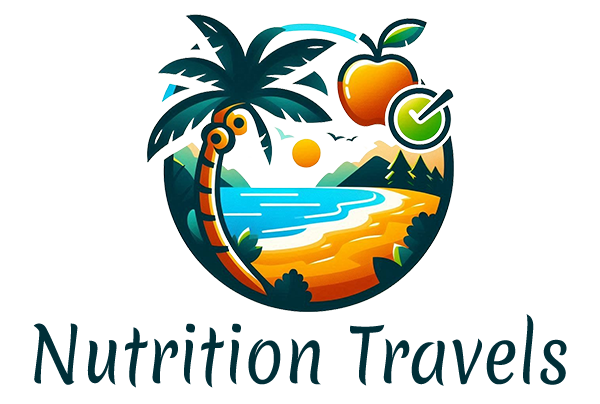Healthy fats for athletes are a cornerstone of optimal performance. While many athletes tend to focus on protein and carbohydrates, fats are often ignored or even considered the “enemy of fitness.” Yet scientific evidence proves that healthy fats are not only a clean source of energy, but also vital for boosting physical performance, protecting heart health, and regulating hormones essential for growth and recovery.
In this article, we’ll explore the role of healthy fats in an athlete’s diet, their multiple benefits, natural sources, and practical tips for incorporating them into your routine without compromising fitness or leading to unwanted weight gain.
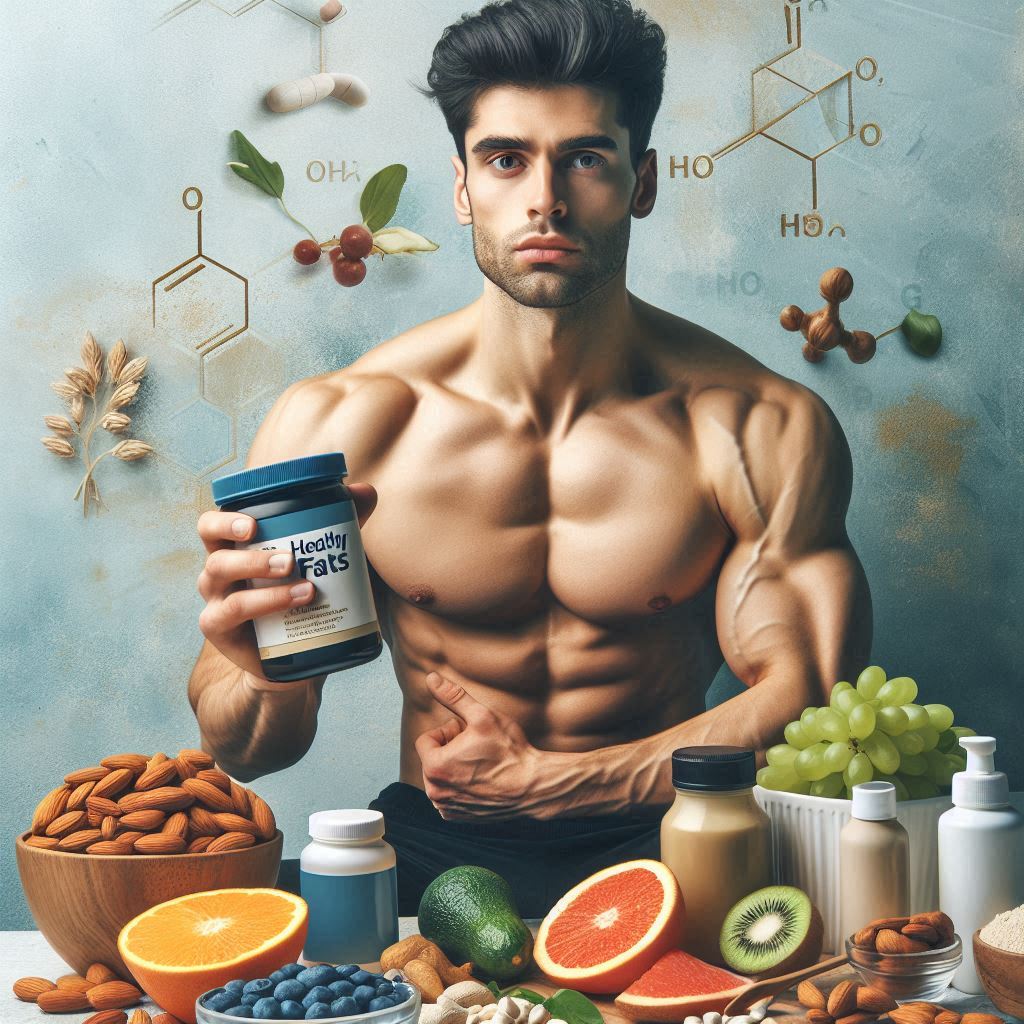
Why Do Athletes Need Healthy Fats?
Healthy fats are not just a basic nutrient; they are an effective support system for athletes during both training and recovery. Here are the main benefits:
1. Supporting Natural Hormone Production:
Healthy fats play a crucial role in the synthesis of essential hormones, particularly testosterone, which is key for muscle growth, increased muscle mass, and faster recovery.
A lack of fats in the diet can lead to hormonal imbalances, ultimately reducing physical performance and results.
2. Enhancing Vitamin Absorption:
Vitamins A, D, E, and K cannot be effectively absorbed without fats. This is one of the key benefits of healthy fats for bodybuilders.
These vitamins strengthen bones, boost immunity, improve skin health, and support metabolic functions essential for building a strong, balanced body.
3. A Sustainable Source of Energy for Training:
Healthy fats provide long-lasting energy, especially during endurance activities or heavy lifting. Unlike carbohydrates that are used up quickly, fats allow for consistent performance without sudden drops in energy.

4. Reducing Inflammation and Accelerating Recovery:
Certain fats, such as omega-3 fatty acids found in fish and nuts, have anti-inflammatory properties. They help reduce muscle soreness after workouts, accelerate muscle recovery, and lower the risk of chronic injuries caused by repetitive stress.
5. Supporting Heart and Cardiovascular Health:
Athletes, especially bodybuilders, need strong circulation to deliver oxygen and nutrients to muscles during training.
Healthy fats help raise good cholesterol (HDL) and lower bad cholesterol (LDL), keeping the heart and arteries healthy, which boosts performance.
6. Promoting Satiety and Appetite Control:
Including healthy fats in the diet helps reduce hunger and manage appetite, contributing to weight maintenance.
They also assist in fat loss without negatively affecting muscle mass—particularly important during cutting phases in bodybuilding.
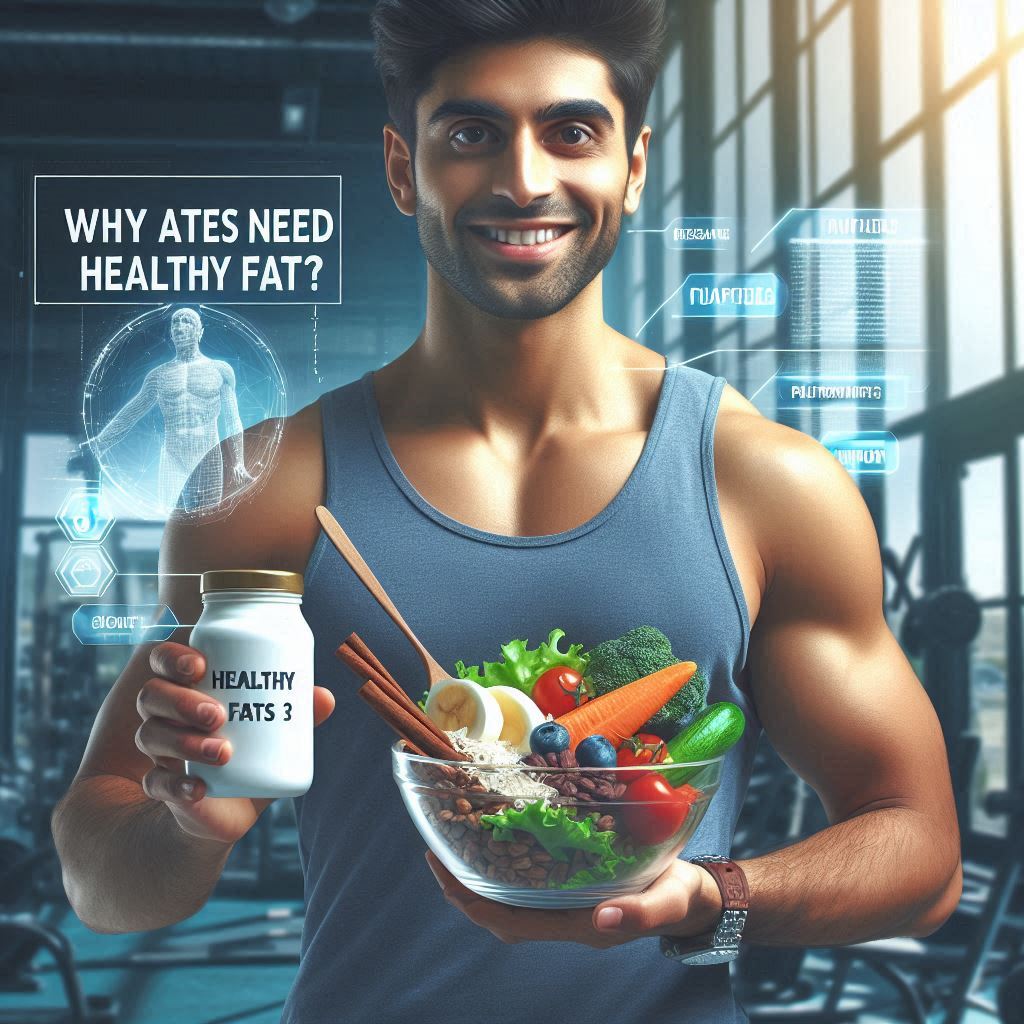
Types of Fats and Their Role in an Athlete’s Body:
1. Healthy Fats:
. Monounsaturated Fats:
Found in olive oil, avocados, and nuts.
→ Support heart health and lower bad cholesterol.
. Polyunsaturated Fats:
Includes omega-3 and omega-6 fatty acids found in fatty fish (salmon, sardines, tuna), flaxseeds, and walnuts.
→ Reduce inflammation and speed up muscle recovery.
. Medium-Chain Triglycerides (MCTs):
Found in coconut oil.
→ Quickly converted into energy and less likely to be stored as fat.
2. Unhealthy Fats:
. Saturated Fats:
Found in fatty meats, butter, and full-fat dairy products.
→ Excess intake increases the risk of heart disease.
. Trans Fats:
Found in processed and fried foods.
→ Harmful to health and reduce athletic performance.
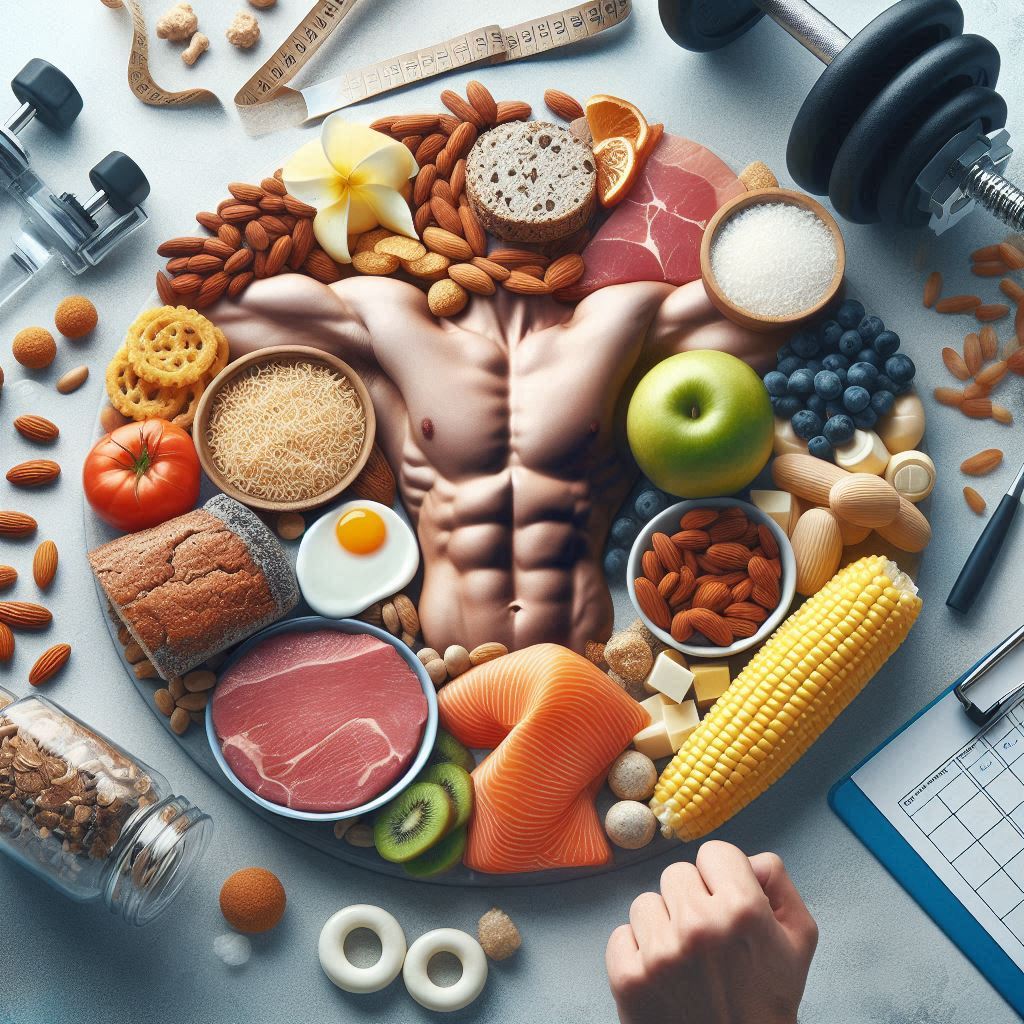
Best Sources of Healthy Fats for Athletes:
1.Nuts: Almonds, walnuts, cashews.
2. Seeds: Chia, flaxseeds, sunflower seeds.
3. Fatty Fish: Salmon, mackerel, sardines (rich in omega-3).
4. Plant Oils: Olive oil, canola oil, avocado oil.
5. Avocados: Rich in monounsaturated fats.
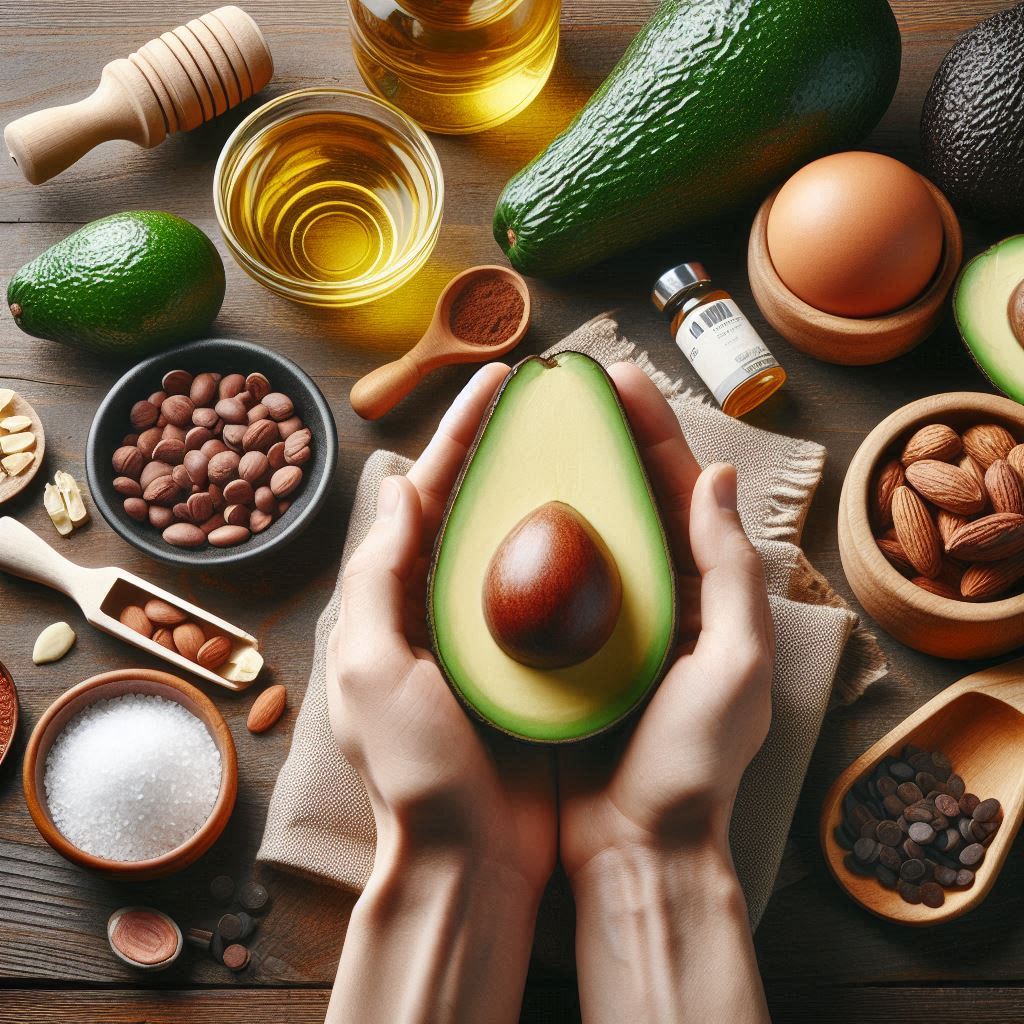
How Can Athletes Incorporate Healthy Fats into Their Diet?
1. Breakfast: Eggs with avocado slices + oatmeal with chia seeds.
2. Pre-Workout Snack: A handful of nuts + a banana for sustained energy.
3. Post-Workout Meal: Grilled salmon with a green salad dressed in olive oil.
4. Snack: Greek yogurt with flaxseeds or dark chocolate.
Golden Tips for Athletes:
1. Keep healthy fats within 30–35% of total daily calories.
2. Combine healthy fats with proteins and carbohydrates for a balanced diet.
3. Avoid overconsuming coconut oil or nuts, as they are high in calories despite their benefits.
4. Aim for a good omega-3 to omega-6 ratio (more fish, less refined vegetable oils).

Healthy fats are not the enemy of athletes—they are the ideal fuel that provides sustained energy, supports muscle building, accelerates recovery, and balances hormones. The key lies in choosing the right sources and incorporating them into a balanced diet alongside proteins and carbohydrates.
And if you’d like to dive deeper into the secrets of sports nutrition and discover the latest tips to help you boost your performance and achieve your health goals, follow us at Nutrition Travels, where you’ll always find reliable information that blends science with practical application—guiding you toward the best version of yourself.
